Part 127: Hearts of Iron II: Chapter 24 - Red Collapse: May 1942 - Jan 1943
May 1942 - January 1943: Red Collapse
Iberia is trapping up its war against German shipping once more, and the Pacific fleet is sent to St. Helena to guard the shipping convoys from Iberian subs and surface raiders.


Research into a first generation of electronic computers completes, giving Germany a potent new tool in future research projects.
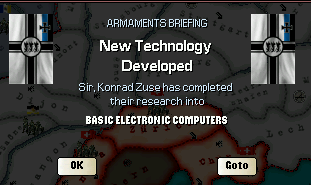
The Manpower gap is finally filled in July, after a few warm months of lull along the fronts, Iberia seeming to have exhausted its will for offensives for the moment.

The only operation of note is a Mazulan landing on Borneo, which is ignored by High Command as the island lacks any real value.
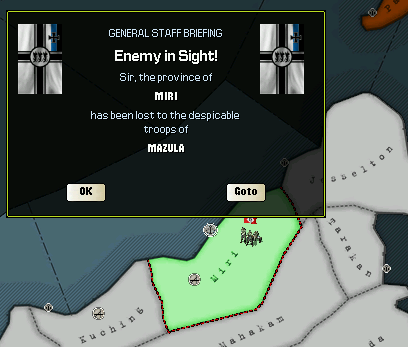
In late July, the lull is finally broken by a massive Iberian offensive into Perpignan that routs the twenty-four defending divisions, Iberian tanks rolling into the city for the fifth or so time.
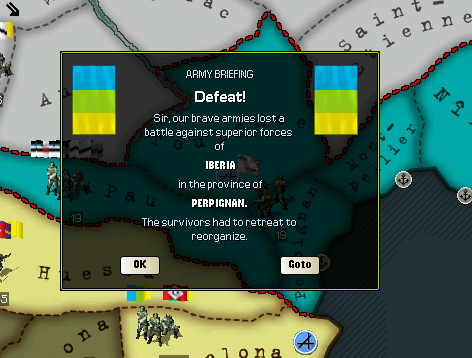
A counter-attack into both Perpignan and the now lightly defended province of Huesca are ordered, and the overextended Iberians routed.
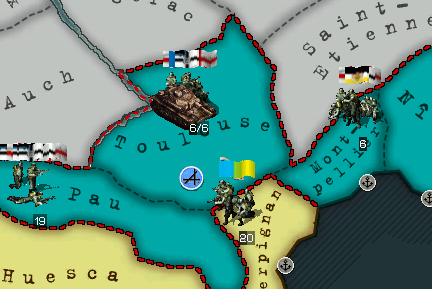
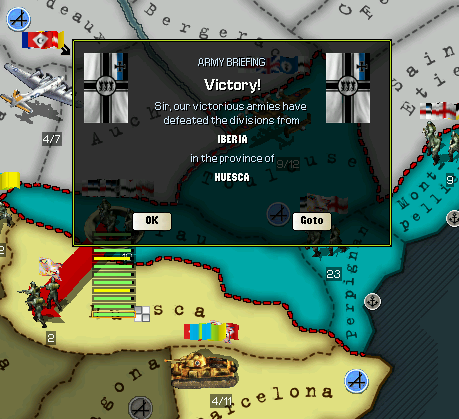
As the smoke clears, German positions are now a bit further south along the Pyrenees and in position to strike the 'northern capital' of Barcelona from two directions.
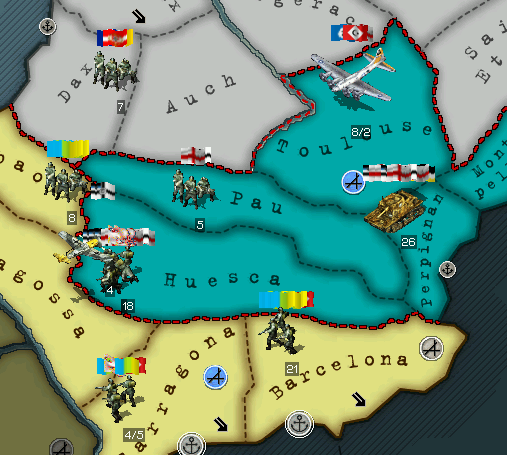
A Mazulan fleet enters the Celtic Sea in August, skirmishing with German fleets at long range. The end result is several sunk capital ships on both sides.



Forty divisions attack Barcelona later the same month, but are thrown back after bitter fighting.

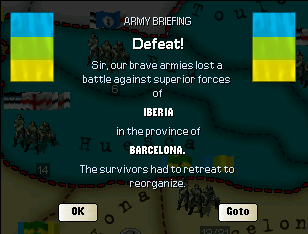
In the Caucasus, a Lithuanian-Scandinavian offensive has broken through Union lines, taking Georgia and advancing into Armenia, as the Union seems intent on concentrating everything they have to Anatolia.

Another attempt on Barcelona in September ends badly, with nothing to show for it but heavy German losses.
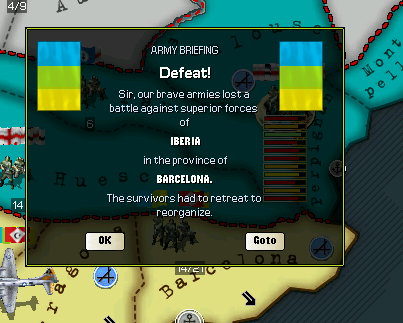
Repeated attempts to instigate a coup in Finland is meeting with equally disappointing results.
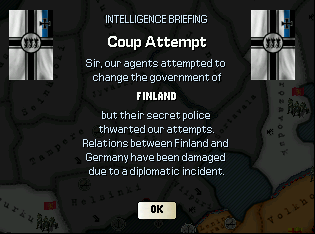
In an attempt to outflank the Iberians, German troops push into the mountains of Bilbao, taking the province, and then attacking and taking Saragossa as well.
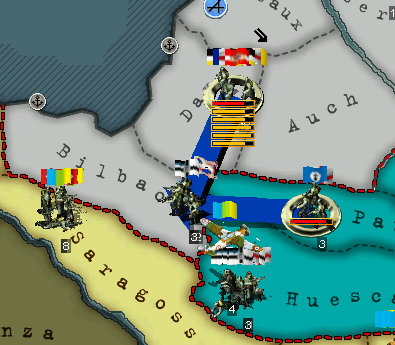
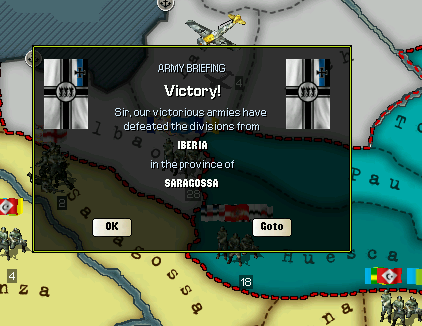
An Iberian counter-attack drives the Germans out of Saragossa, but is stopped at Bilbao, and the two sides entrench once more along the new front.
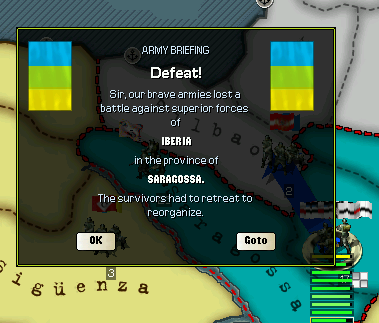
Advancements into the power of the atom continues with the expansion of the nuclear reactor and development of another new generation of experimental reactors, with Heisenberg claiming that viable nuclear power is only a year or two away.
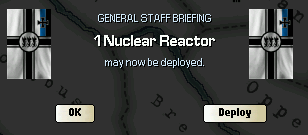
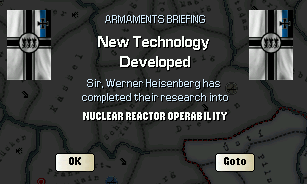
Some thirty Austrian and Lombard divisions redeployed from the Balkan front arrive in November and are moved up to support another bid for Barcelona.
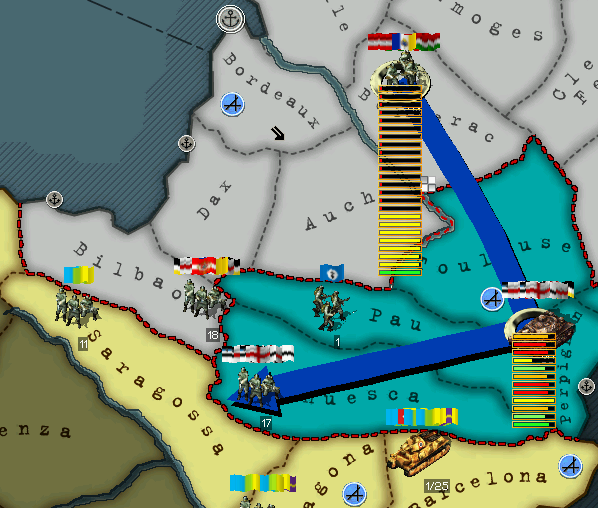
The offensive in mid-December is an operation of unprecedented size - fifty-two divisions attacking Barcelona itself, and another twenty-five striking against Tarragona to prevent reserves from moved up to its defense.
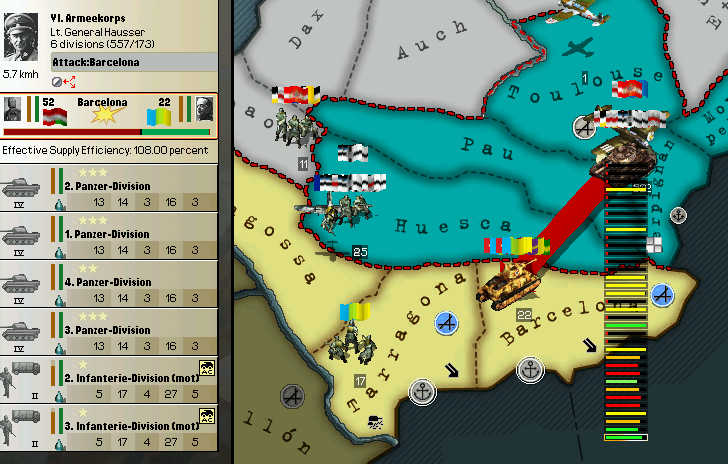
The operation is a complete disaster, with heavy losses and routed forces in both battles. To add insult to injury, the Tactical and Close Support bombers sent to support the offensive are intercepted by the Iberian airforce and nearly all shot down by new-generation Iberian interceptors that they cannot outrun. Only a single Tactical Bomber division remains as the smoke clears.

The year ends with a flood of new equipment for the German infantry in the form of new types of rifles, submachine guns and training doctrines. Where brute force has been unable to win, superior training and equipment might just be the trick for 1943.
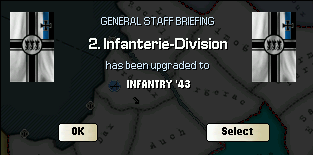
As 1942 turns to 1943, the Iberians are stubborntly resisting the German advance - six months of bitter fighting have resulted in the capture of only two worthless mountain provinces.
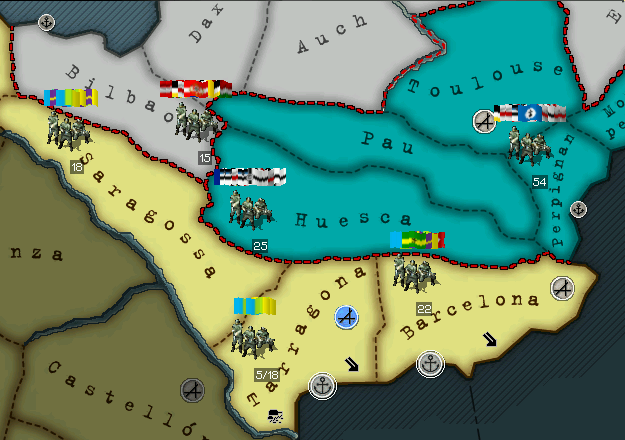
The Union is collapsing, having withdrawn just about their entire fighting force to Anatolia - over a hundred divisions from what aerial surveys can tell. In the process, they have left Persia and Central Asia up for grabs, and Lithuania and Imperial India are quickly advancing their positions.
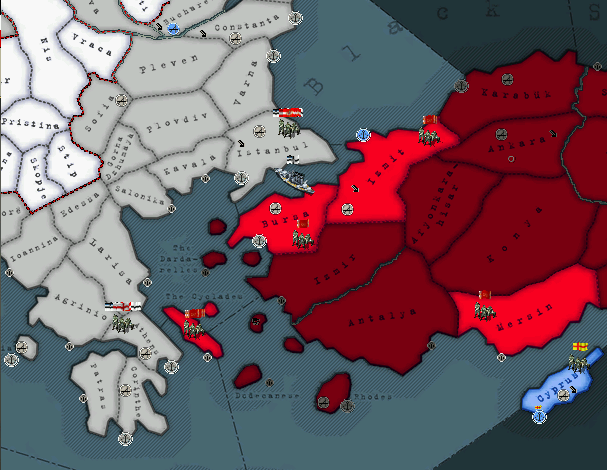


Egypt is doomed - all remaining divisions are in full retreat back towards Cairo, which is under attack from three directions. Ships are being sent to pull the expeditionary forces out and leave the Egyptians to their fate.
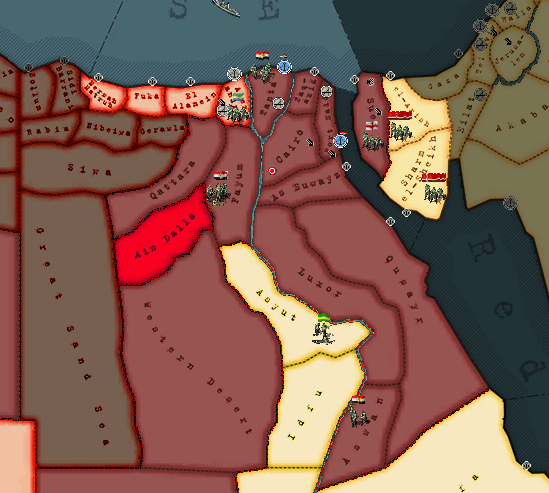
The Russian-Japanese war continues unabated without a clear winner. The question is how long both sides can keep throwing away man and material for possessions of frozen siberian wastelands.
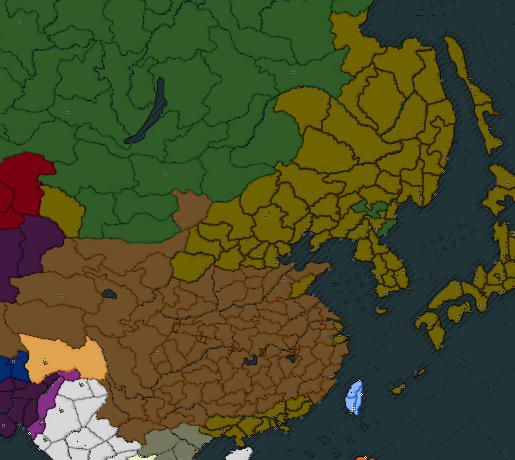
It seems as though the final battle will come down to Democracy vs Monarchy.